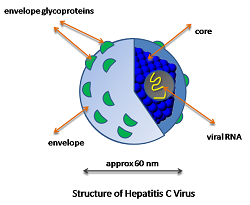 A group of Korean researchers has developed a new approach to treating the liver-affecting hepatitis C infection that involves stopping the virus from replicating. So far, the team has shown success with newly developed agents in a preclinical mouse model.
A group of Korean researchers has developed a new approach to treating the liver-affecting hepatitis C infection that involves stopping the virus from replicating. So far, the team has shown success with newly developed agents in a preclinical mouse model.
Hepatitis C treatments have had varied success, in part because of antivirals that cause drug resistance. About 50% to 80% treated for hep C are cured, but because the infection can often be present with no symptoms, it can become a chronic condition that can lead to liver scarring and, ultimately, cirrhosis.
A team led by Seong-Wook Lee of Dankook University in Yongin, Republic of Korea has created a new type of agent that binds to the "business end" of a critical protein--the replicase protein--which is the central catalytic enzyme that drives HCV replication. The agent works by tightly binding RNA aptamers--short nucleic acids or peptides that have the same binding ability that antibodies do--to the part of the protein that performs the action of a catalyst, disabling the replicase.
In mice, the aptamers inhibited diverse genotypes of hep C virus without toxic effects. In the study, doses of ligand-conjugated aptamer honed in on the liver tissue in mice without inducing innate immunity. The research appears in the June 2013 issue of the Journal of Virology.
Current therapies for HCV come with a host of side effects since many treatment regimens rely on the use of a combination of several drugs. So far, there is no single regimen used across the board to treat the disease.
- read the scientific article (PDF)
- here's the press release